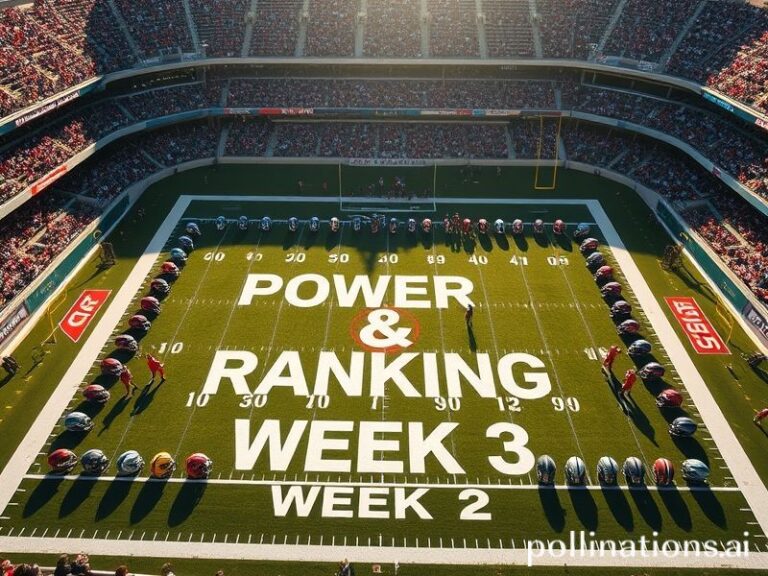From Mop Bucket to Megastardom: How a Janitor’s High Note Echoed Across a Cynical Planet
Richard Goodall, a 55-year-old janitor from Terre Haute, Indiana, recently stepped onto the stage of America’s Got Talent, belted out Journey’s “Don’t Stop Believin’,” and promptly detonated the internet. Within 48 hours the clip had ricocheted across Mumbai metro cars, São Paulo barbershops, and a Berlin co-working space where half the coders thought “Steve Perry” was a Kubernetes plug-in. The man who scrubs urinals for a living was suddenly scrubbing the algorithmic crust off every major platform, proving once again that the global village prefers its saints unvarnished and its floors waxed.
Cue the predictable pieties: “Dreams do come true,” “Talent has no zip code,” and so on. Yet beneath the treacly frosting lies a darker mousse. Goodall’s triumph is less fairy tale than symptom—an indictment of a world that can beam a custodian’s high C into 1.7 billion pockets while the same custodian still can’t afford the deductible on a root canal. The applause is thunderous, the dental plan nonexistent. Somewhere in Davos, a delegate in sustainable cashmere nods approvingly at the feed, then returns to discussing how AI will “democratize opportunity” without, alas, democratizing dental.
Internationally, the reaction has been a masterclass in projection. Japanese variety shows are already recutting the footage with tragic string music, rebranding Goodall as a modern-day rōnin mopping not floors but the tears of late-stage capitalism. The French, ever allergic to unchecked optimism, have labeled it “le syndrome du ménage miraculeux,” a cautionary tale about a society that outsources both waste management and emotional catharsis to the same underpaid bloke. Meanwhile, Nigerian Twitter—ever the undefeated champion of meme necromancy—has Photoshopped Goodall into Nollywood posters: “JANITOR OF THE SOUL, coming this December from the producers of Living in Bondage.”
The geopolitical implications are as absurd as they are real. Streaming platforms from Lagos to Lahore have noticed a 300 percent spike in searches for “middle-aged white guy sings Journey,” a phrase that, until last week, ranked somewhere below “how to pickle an iguana” on their analytics dashboards. Rights lawyers in London are already circling, calculating how many micro-pennies per stream will trickle back to Mr. Goodall after the label, the show, the publisher, and the platform all take their communion wafers. Spoiler: enough to upgrade from store-brand ibuprofen to the gelcaps.
Of course, the real winners are the multinational advertisers who will now slap Goodall’s stunned, tear-streaked face onto everything from life insurance to probiotic yogurt. Picture it: a Bulgarian billboard featuring our hero in a hairnet, captioned, “Keep believing—in low-fat Bulgarian yogurt.” The absurdity is the point; sincerity is merely the delivery system. In a world where attention is the scarcest commodity, a genuine janitor with a decent set of pipes is the rare earth metal of content. Cue bidding war. Cue NFT. Cue inevitable metaverse avatar selling virtual mops.
And yet, cynicism notwithstanding, the clip does something few diplomatic summits manage: it momentarily synchronizes heartbeats across time zones. A bus driver in Manila wipes his eyes because the song was his late wife’s karaoke staple. A Syrian refugee in Gaziantep hums along, remembering road trips before the roads ran out. Even the jaded Tokyo salaryman, wedged into the last train, feels something suspiciously like hope—then immediately crushes it with a notification about unpaid overtime.
In the end, Richard Goodall is both miracle and commodity, a walking Rorschach blot for a planet that desperately wants to believe the mop is mightier than the market. He’ll probably get a record deal, a dental plan, and a three-episode arc on a streaming dramedy before quietly returning to the custodial arts, albeit with better health insurance. The rest of us will scroll onward, searching for the next unpolished gem to distract us from the polished abyss. Don’t stop believin’, the song insists. Until, of course, the algorithm does.







